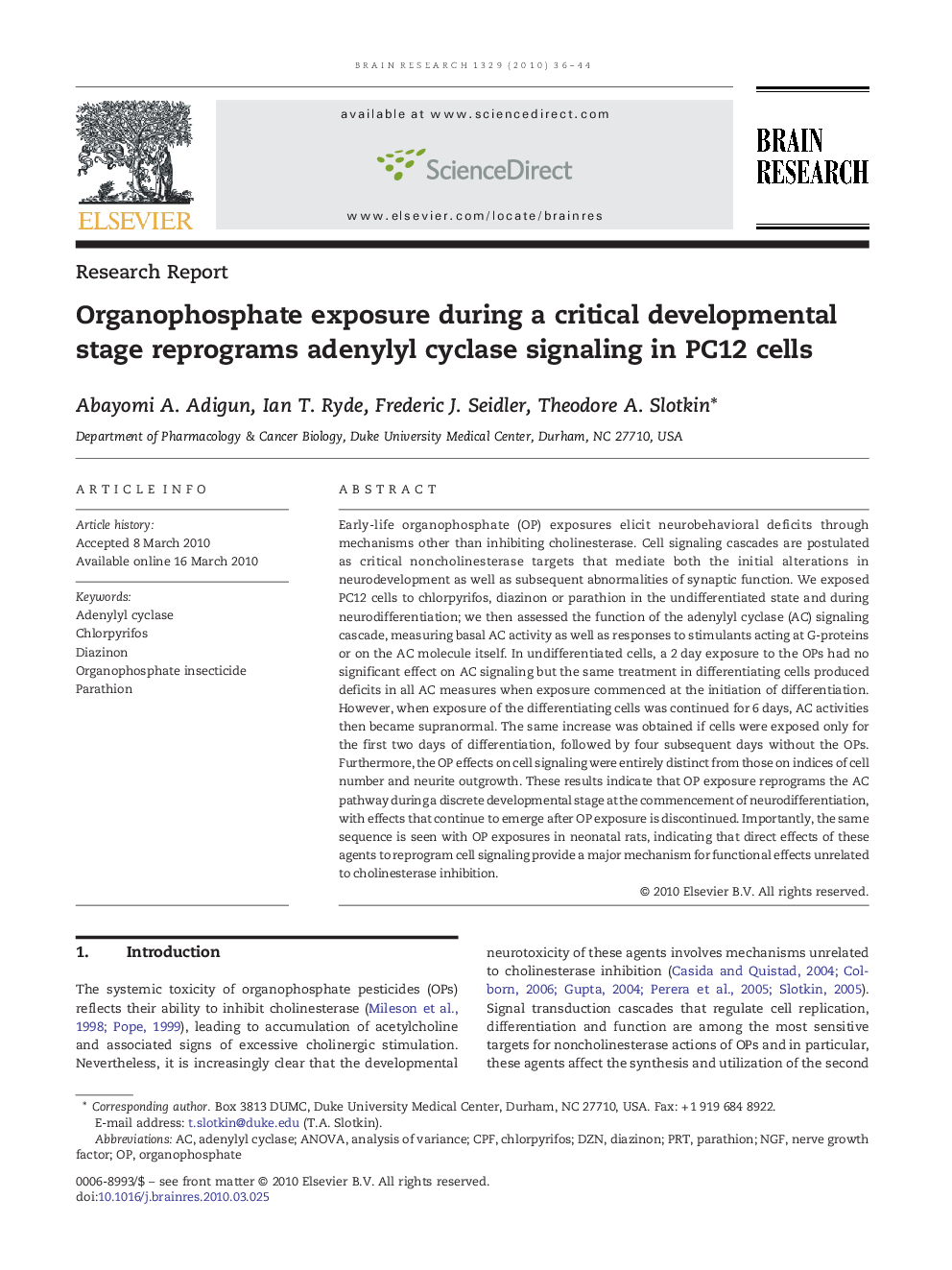| Article ID | Journal | Published Year | Pages | File Type |
|---|---|---|---|---|
| 4327094 | Brain Research | 2010 | 9 Pages |
Early-life organophosphate (OP) exposures elicit neurobehavioral deficits through mechanisms other than inhibiting cholinesterase. Cell signaling cascades are postulated as critical noncholinesterase targets that mediate both the initial alterations in neurodevelopment as well as subsequent abnormalities of synaptic function. We exposed PC12 cells to chlorpyrifos, diazinon or parathion in the undifferentiated state and during neurodifferentiation; we then assessed the function of the adenylyl cyclase (AC) signaling cascade, measuring basal AC activity as well as responses to stimulants acting at G-proteins or on the AC molecule itself. In undifferentiated cells, a 2 day exposure to the OPs had no significant effect on AC signaling but the same treatment in differentiating cells produced deficits in all AC measures when exposure commenced at the initiation of differentiation. However, when exposure of the differentiating cells was continued for 6 days, AC activities then became supranormal. The same increase was obtained if cells were exposed only for the first two days of differentiation, followed by four subsequent days without the OPs. Furthermore, the OP effects on cell signaling were entirely distinct from those on indices of cell number and neurite outgrowth. These results indicate that OP exposure reprograms the AC pathway during a discrete developmental stage at the commencement of neurodifferentiation, with effects that continue to emerge after OP exposure is discontinued. Importantly, the same sequence is seen with OP exposures in neonatal rats, indicating that direct effects of these agents to reprogram cell signaling provide a major mechanism for functional effects unrelated to cholinesterase inhibition.
